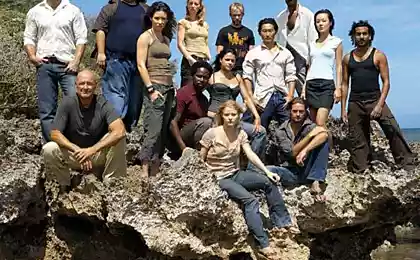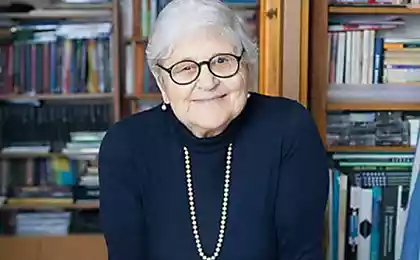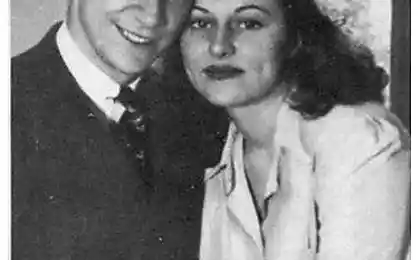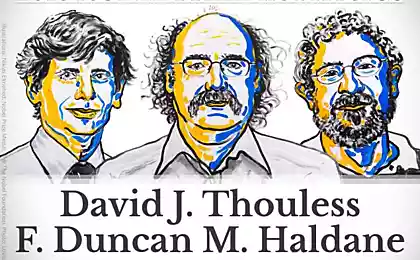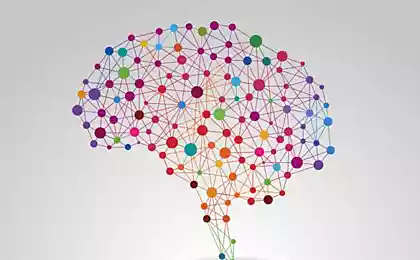530
How to think Nobel laureates?
What can we learn from physicist Richard Feynman who won the Nobel prize, played drums, drew pictures and loved to explain by examples.
The life story of Richard Feynman is interesting, even if you don't aspire to the most prestigious scientific award, and just want to look at the world with curiosity and deep understanding. In short, to think like a Martian.

Who does not know about Feynman, he did not know about the amazing and stunning the scientist. Books, lectures, stories of his contemporaries reveal him as a man who combines an incredible intellect and sense of humor, child-like curiosity and fascination. He created a whole new area of science and yet it is still a bit of a bully. The study of the behavior of ants, because they suddenly had paved the way for his closet, or the study of biology instead of relaxing — it was all for him of course.
Teach by example
Works, video lectures, and a course in physics will provide an opportunity to assess atypical method of teaching Feynman, who inspired several generations of physics students. When explaining the material he used methods which he used in his scientific work — cited examples.
So I arranged, when I described the task in General terms, I can't figure it out, if not keep in mind a specific example and not mentally trying to it what I tell you.
Feynman sought to convey to students the meaning of the phenomena. He wanted to understand what was going on, really understood the new material, he could apply the acquired knowledge to other phenomena. In the course of his lectures, which he delivered at Caltech, published a series of books called "the Feynman lectures on physics". They read more like an adventure novel than the usual textbook.
Feynman believed that if a question is impossible to explain to a freshman to understand, then, this issue is insufficiently studied. The main feature of his works — the unusual order of presentation. The problem with the standard benefits that they rarely show the relationship between various Sciences, so the reader is difficult to build a unified picture of the world and clear to navigate in it. But Feynman, like a magical thread connects multi-faceted physical phenomena into a single fabric of the universe. He instantly goes from the analysis of the motion of the spring with a small weight to the movement of the planets.
So truly reveals all the splendor of science, explaining the world, and the splendor of human intellect, is able to reach such understanding. Perhaps it was from such things that love is born to scientific knowledge.
Understanding instead of rote learning
Feynman sought to the students are crammed material, and understood. For the first time he faced "cramming" in Brazil, where he was invited to read a course of lectures on physics to groups of students, future teachers. They are easily answered questions, until the case came to practical tasks.
The answers needed to obtain, after a little thought, not remembering — in the textbooks was not the same examples. It was required to apply theoretical knowledge to real-world problems. But students could not. Later, Feynman attended a lecture at the engineering school and understood how this happened.
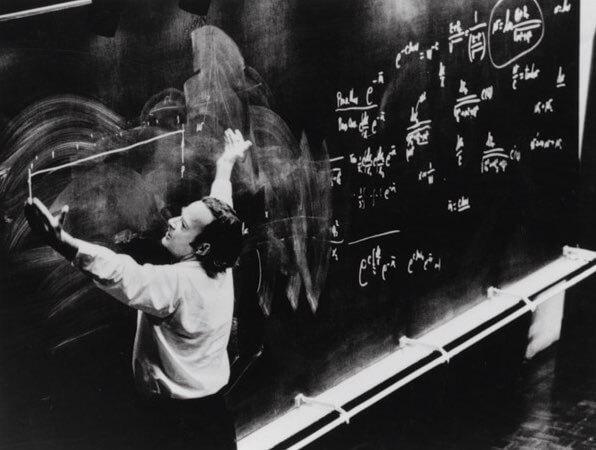
After the lecture I asked one student:
— You are all of these accounts. What do you do with them?
Oh, we memorize them. We will have an exam.
— And what will be the exam?
— Very simple. I can tell You right now to name one of the issues — he looked at his notebook and said, "In which case the two bodies are considered equivalent?". And the answer: "Two bodies are considered equivalent if equal torques will produce equal acceleration."
So, as you can see, they could pass the examinations, and "learn" all this stuff, and not know anything, except what they had memorized.
Ralph Leighton and Richard Feynman,
"Surely you're joking, Mr. Feynman!"
Students just memorize the words without understanding the meaning. If the task met know the definition, they can quickly and easily mint. But to give a specific example or resolve based on the definition of the task, the like of which did not understand the textbooks, they simply could not. They didn't know anything except the words that are remembered.
Would get the dinosaur to the window?
In the lectures Feynman is very little dry scientific language. He wanted to convey to the students that need to learn through understanding, not memorization. The scientist learned that rule from childhood: this method of knowledge was instilled in him by his father, who, though he was not a scientist, knew perfectly well what and how to succeed in the world.
We read, say, about dinosaurs. The book talked about the Tyrannosaurus Rex and claimed something like: "This dinosaur is twenty-five feet in height, and the width of his head – six feet." Then my dad stopped reading and said, "let's see what that means. This means that if he was in our yard, you could stick your head in the window." (We were on the second floor.) "But his head would be too wide to fit through the window." All that I've read, he tried to translate into the language of reality.
Richard Feynman, "What do you care what other people think?"
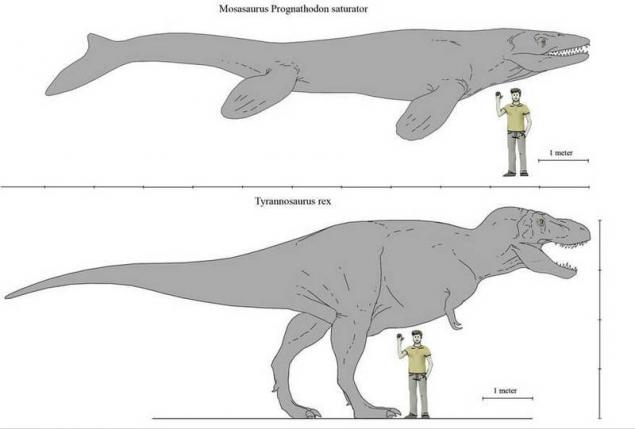
To say almost the same thing
Perhaps Feynman's attitude to the formal language of the affected part in one interdisciplinary conference. Before the participants were sent the article for review. Reading one of them, Feynman felt very insecure, because I didn't understand a word. But perseverance he was not to occupy.
I stopped at the first place and carefully read the following sentence. Exactly I don't remember it, but it was very similar to this: "an Individual member of the social community often receives information via visual, symbolic channels." I turned the proposal this way and that and finally translated it into normal language. Know what it meant? "People read".
Ralph Leighton and Richard Feynman,
"Surely you're joking, Mr. Feynman!"
As the authors deftly hid behind big words banal idea! Sometimes when there is no novelty and values, their lack of cover too "intellectual" speech, so that readers believe that the depth of the topic is too tough for them, although the author only seeks to throw dust in the eyes. Take a look: if the text is overloaded with terms, definitions, concepts, maybe he covers his emptiness?
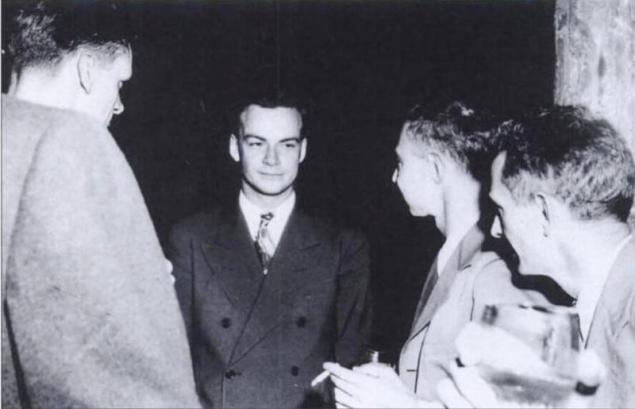
How do you evaluate your life?
Richard Feynman wouldn't bow down to authority. He admitted that when he speaks about physics, and forgets the rest. Including about the propriety and loud the name of the source.
After one of the collections of the Niels Bohr invited him to their discussion, because Feynman was the only one who was not afraid to argue a renowned scholar. Their disputes boiled down to one thing — the search for truth, and so the regalia and status discarded to the side.
Another property that was inherent in the Feynman — perseverance. Look for contradictions, to come up with new methods to test their performance again and again back to the top after setbacks, reflecting on decisions — this was his way to something new. None of scientific discoveries don't happen overnight: it requires huge mental work, perseverance and love for his work.
Also interesting: Pico Iyer: the Art of pause
Jorge Bucay: 20 steps on the way to her
Of course, no step-by-step instructions to receive the award or achievement of outstanding results, but the true understanding, the lack of blind faith to authority and perseverance will always be helpers along the way.
— What is your evaluation of life?
— 64.
— Why are you called the "64"?
— How do you propose to evaluate the life?
— No, why are you calling "64", and not, say, "73"?
— If I call it a "73" you would have asked me this same question.
Richard Feynman in conversation with the psychiatrist of the military medical Commission
published Author: Irina Khromova
Source: newtonew.com/discussions/nobel-howto
The life story of Richard Feynman is interesting, even if you don't aspire to the most prestigious scientific award, and just want to look at the world with curiosity and deep understanding. In short, to think like a Martian.

Who does not know about Feynman, he did not know about the amazing and stunning the scientist. Books, lectures, stories of his contemporaries reveal him as a man who combines an incredible intellect and sense of humor, child-like curiosity and fascination. He created a whole new area of science and yet it is still a bit of a bully. The study of the behavior of ants, because they suddenly had paved the way for his closet, or the study of biology instead of relaxing — it was all for him of course.
Teach by example
Works, video lectures, and a course in physics will provide an opportunity to assess atypical method of teaching Feynman, who inspired several generations of physics students. When explaining the material he used methods which he used in his scientific work — cited examples.
So I arranged, when I described the task in General terms, I can't figure it out, if not keep in mind a specific example and not mentally trying to it what I tell you.
Feynman sought to convey to students the meaning of the phenomena. He wanted to understand what was going on, really understood the new material, he could apply the acquired knowledge to other phenomena. In the course of his lectures, which he delivered at Caltech, published a series of books called "the Feynman lectures on physics". They read more like an adventure novel than the usual textbook.
Feynman believed that if a question is impossible to explain to a freshman to understand, then, this issue is insufficiently studied. The main feature of his works — the unusual order of presentation. The problem with the standard benefits that they rarely show the relationship between various Sciences, so the reader is difficult to build a unified picture of the world and clear to navigate in it. But Feynman, like a magical thread connects multi-faceted physical phenomena into a single fabric of the universe. He instantly goes from the analysis of the motion of the spring with a small weight to the movement of the planets.
So truly reveals all the splendor of science, explaining the world, and the splendor of human intellect, is able to reach such understanding. Perhaps it was from such things that love is born to scientific knowledge.
Understanding instead of rote learning
Feynman sought to the students are crammed material, and understood. For the first time he faced "cramming" in Brazil, where he was invited to read a course of lectures on physics to groups of students, future teachers. They are easily answered questions, until the case came to practical tasks.
The answers needed to obtain, after a little thought, not remembering — in the textbooks was not the same examples. It was required to apply theoretical knowledge to real-world problems. But students could not. Later, Feynman attended a lecture at the engineering school and understood how this happened.

After the lecture I asked one student:
— You are all of these accounts. What do you do with them?
Oh, we memorize them. We will have an exam.
— And what will be the exam?
— Very simple. I can tell You right now to name one of the issues — he looked at his notebook and said, "In which case the two bodies are considered equivalent?". And the answer: "Two bodies are considered equivalent if equal torques will produce equal acceleration."
So, as you can see, they could pass the examinations, and "learn" all this stuff, and not know anything, except what they had memorized.
Ralph Leighton and Richard Feynman,
"Surely you're joking, Mr. Feynman!"
Students just memorize the words without understanding the meaning. If the task met know the definition, they can quickly and easily mint. But to give a specific example or resolve based on the definition of the task, the like of which did not understand the textbooks, they simply could not. They didn't know anything except the words that are remembered.
Would get the dinosaur to the window?
In the lectures Feynman is very little dry scientific language. He wanted to convey to the students that need to learn through understanding, not memorization. The scientist learned that rule from childhood: this method of knowledge was instilled in him by his father, who, though he was not a scientist, knew perfectly well what and how to succeed in the world.
We read, say, about dinosaurs. The book talked about the Tyrannosaurus Rex and claimed something like: "This dinosaur is twenty-five feet in height, and the width of his head – six feet." Then my dad stopped reading and said, "let's see what that means. This means that if he was in our yard, you could stick your head in the window." (We were on the second floor.) "But his head would be too wide to fit through the window." All that I've read, he tried to translate into the language of reality.
Richard Feynman, "What do you care what other people think?"

To say almost the same thing
Perhaps Feynman's attitude to the formal language of the affected part in one interdisciplinary conference. Before the participants were sent the article for review. Reading one of them, Feynman felt very insecure, because I didn't understand a word. But perseverance he was not to occupy.
I stopped at the first place and carefully read the following sentence. Exactly I don't remember it, but it was very similar to this: "an Individual member of the social community often receives information via visual, symbolic channels." I turned the proposal this way and that and finally translated it into normal language. Know what it meant? "People read".
Ralph Leighton and Richard Feynman,
"Surely you're joking, Mr. Feynman!"
As the authors deftly hid behind big words banal idea! Sometimes when there is no novelty and values, their lack of cover too "intellectual" speech, so that readers believe that the depth of the topic is too tough for them, although the author only seeks to throw dust in the eyes. Take a look: if the text is overloaded with terms, definitions, concepts, maybe he covers his emptiness?

How do you evaluate your life?
Richard Feynman wouldn't bow down to authority. He admitted that when he speaks about physics, and forgets the rest. Including about the propriety and loud the name of the source.
After one of the collections of the Niels Bohr invited him to their discussion, because Feynman was the only one who was not afraid to argue a renowned scholar. Their disputes boiled down to one thing — the search for truth, and so the regalia and status discarded to the side.
Another property that was inherent in the Feynman — perseverance. Look for contradictions, to come up with new methods to test their performance again and again back to the top after setbacks, reflecting on decisions — this was his way to something new. None of scientific discoveries don't happen overnight: it requires huge mental work, perseverance and love for his work.
Also interesting: Pico Iyer: the Art of pause
Jorge Bucay: 20 steps on the way to her
Of course, no step-by-step instructions to receive the award or achievement of outstanding results, but the true understanding, the lack of blind faith to authority and perseverance will always be helpers along the way.
— What is your evaluation of life?
— 64.
— Why are you called the "64"?
— How do you propose to evaluate the life?
— No, why are you calling "64", and not, say, "73"?
— If I call it a "73" you would have asked me this same question.
Richard Feynman in conversation with the psychiatrist of the military medical Commission
published Author: Irina Khromova
Source: newtonew.com/discussions/nobel-howto
Do this simple procedure and you will forget about neck pain for 5 years!
Why during takeoff asked to open the curtains on portholes. 12 flight facts







